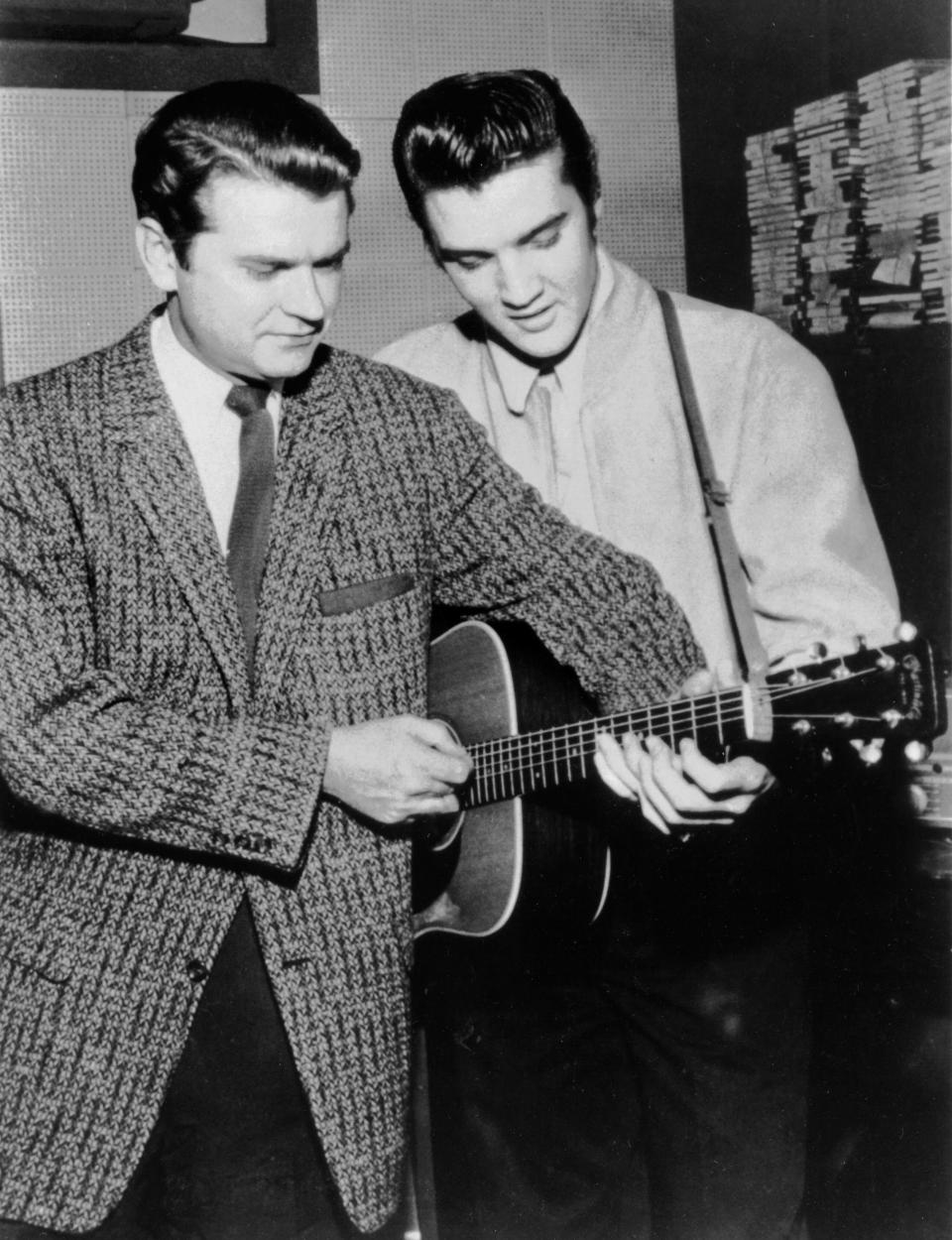What kind of music is Memphis famous for? Blues, rock 'n' roll and much more
Memphis can lay claim to playing a significant and in some cases crucial role in just about every type of American popular music.
But, as the Memphis tourism bureau is happy to remind visitors, the city has two marketable nicknames that suggest its importance in two forms of musical expression in particular.
Memphis labels itself "The Home of the Blues" and "The Birthplace of Rock 'n' Roll."

Is that enough? Perhaps the city should give itself a third shout-out, as "The Center of Soul," in recognition of the contributions of such record labels as Stax and Hi, and such artists as Isaac Hayes and Al Green.
"The Home of Hip-Hop" might be a viable fourth campaign. Even those who ignore rap music probably are aware of Three 6 Mafia's 2006 Oscar win for "It's Hard Out Here for a Pimp," in the Best Original Song category.
Memphis' "Blues" fame is due largely to the presence since 1841 of Beale Street, a major center of Black commerce and culture that continues to showcase blues musicians in restaurants and nightclubs. Beale Street positioned Memphis as a big-city mecca for blues musicians from the Mississippi Delta and other neighboring regions, and provided exposure for such artists as Memphis Minnie and B.B. King.
MEMPHIS MUSIC HALL OF FAME: Wilson Pickett, The Gentrys, James Carr among Memphis Music Hall of Fame's class of 2024
Also, where would "The Father of the Blues" live but in the "The Home of the Blues"? A trumpet player and composer, W.C. Handy — who titled his 1941 autobiography "Father of the Blues" — was born in Florence, Alabama, but became famous after relocating to Memphis in 1909 and adapting the Black folk music he encountered into such popular composed works as "Memphis Blues" and "St. Louis Blues." Via recordings, sheet music and concerts (including a 1928 date at New York's Carnegie Hall), Handy brought mainstream recognition and even a certain respectability to "field" and "street" music that some had considered "unsophisticated."

Handy was Memphis' most famous musician until the arrival of another transplant to the city, who helped ignite the so-called big bang of rock 'n' roll when he recorded "That's All Right" on July 5, 1954, at Sam Phillips' studio at 706 Union Ave. That man, of course, was 19-year-old Elvis Presley.
Released by Phillips (another Florence, Alabama, native) on his Sun Records label, with "Blue Moon of Kentucky" on the flip side, the song launched Elvis on a trajectory that would make him the "King of Rock 'n' Roll," while also establishing Sun as a beacon for new artists, mostly in the "rockabilly"/rock 'n' roll, rhythm-and-blues and country formats, including Johnny Cash, Carl Perkins, Howlin' Wolf, Little Milton, Jerry Lee Lewis, Charlie Rich and many more, including Ike Turner, whose band cut a single that often is cited as the first rock 'n' roll record, "Rocket '88," in 1951.
Memphis radio stations helped spread the word. WHBQ-AM 560 disc jockey "Daddy-O" Dewey Phillips was the first man in America to spin an Elvis disk, while WDIA-AM 1070 — with such deejays as B.B. King and Rufus Thomas — made history by being the first radio station to switch entirely to "Black" content aimed at Black audiences.
In the 1960s and into the 1970s, Memphis helped lead the soul music explosion, as such labels as Stax, Hi and Goldwax and such studios as Stax, Royal and American recorded and/or released essential recordings by Booker T. & the MG's, Carla Thomas, Otis Redding, Isaac Hayes, Al Green, Ann Peebles, James Carr, the Box Tops and others.
Incorporating "samples" from many of these records into their own music, Memphis rap artists kept the city relevant even as rock and soul became secondary to hip-hop on the national charts. Just as Stax offered a gritty alternative to Motown, DJ Spanish Fly, Three 6 Mafia, 8Ball & MJG, Project Pat and others employed digital drum-kit sounds, "horror" synthesizers, and other do-it-yourself strategies to distinguish Memphis hip-hop from the often slicker sounds emerging from other cities.
Memphis' music legacy can be explored in depth at several locations. Sun Studio is open for tours, and the Stax Museum of American Soul Music occupies the space of the original Stax headquarters. The W.C. Handy Home and Museum is on Beale Street, not far from the Memphis Rock 'n' Soul Museum.
This article originally appeared on Memphis Commercial Appeal: What kind of music is Memphis known for?
